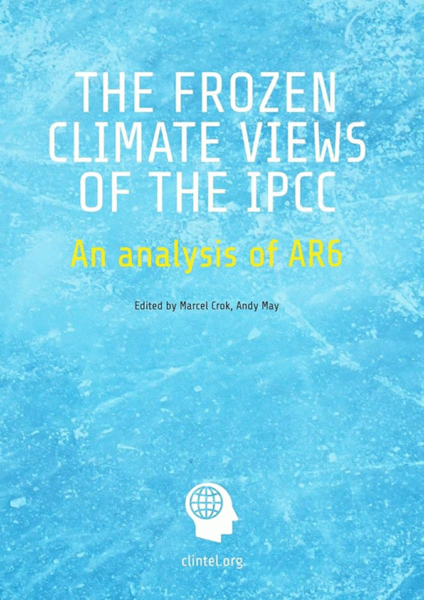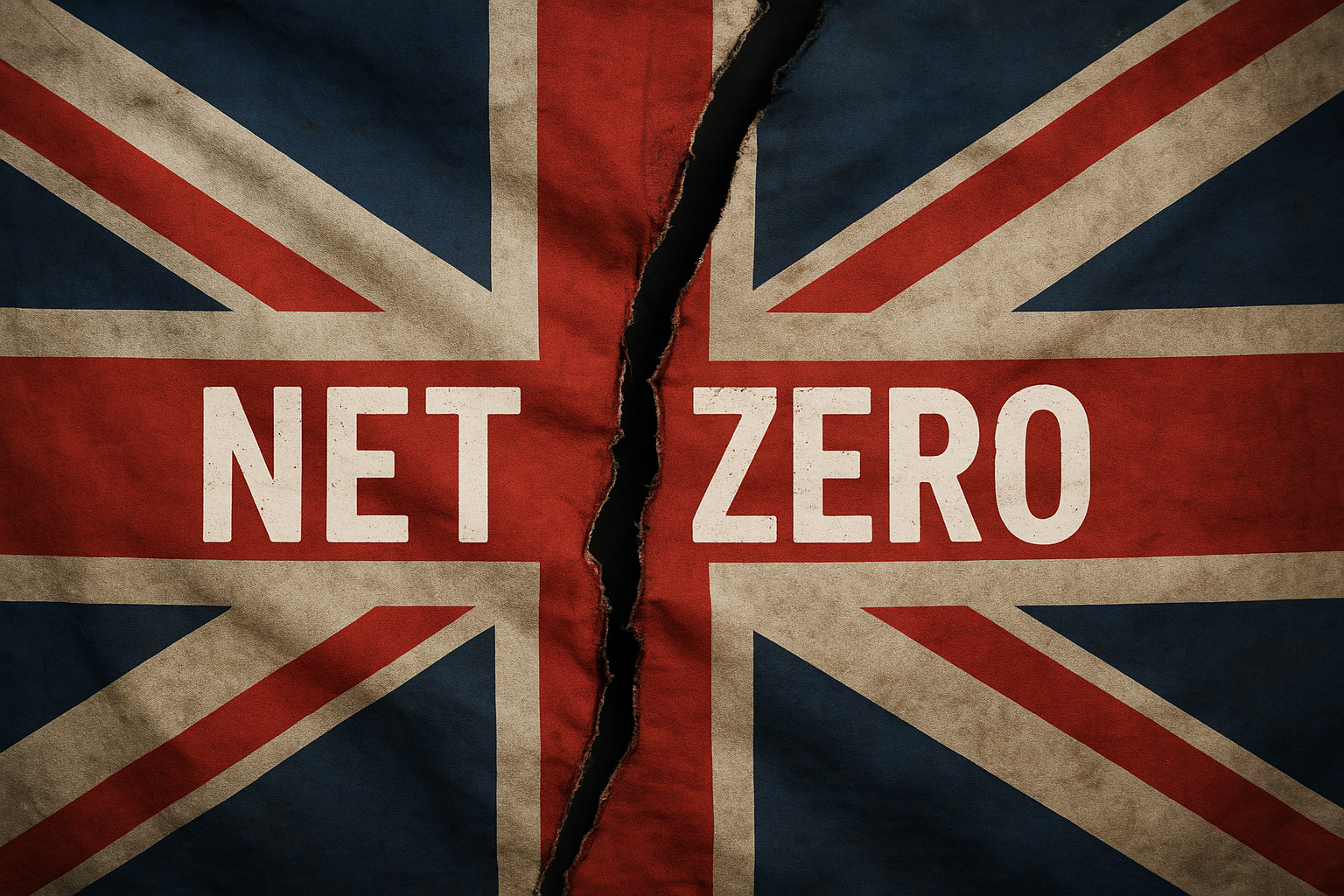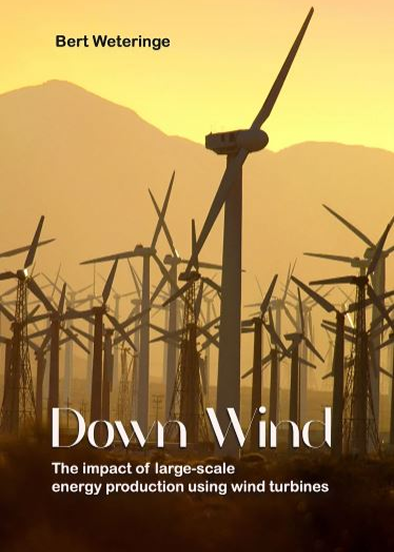The greenlash is here: Britain cannot afford Net Zero and democracy at the same time
The Net Zero revolution was supposed to save Britain. Instead, it’s breaking it. As the country plunges into an energy affordability crisis, even Westminster insiders are starting to question whether the grand green experiment has gone too far.
Something is breaking in British politics. The centre is obviously fraying. The edges are hardening, and the public mood is turning restless. The recent rally in Westminster perfectly captured it: a strange alliance of Tommy Robinson, Katie Hopkins, Lawrence Fox, even Elon Musk, joined by a crowd of hundreds of thousands. Sky News’ Trevor Phillips said of the attendees: “These are the people you meet in a country pub with their dogs, or in a queue for drinks at half-time.”
Even Labour’s Clive Lewis admitted, many of the rally’s attendees weren’t there for the “grifters” but simply “to feel part of something bigger”.
This sense of dislocation is no longer confined to the margins. Reform is surging in the polls and our media landscape itself is splintering. Michael Gove has warned that the mood increasingly resembles the 1930s. He is right to be alarmed. Ordinary people are rapidly losing faith that politics can deliver.
Britain has not seen serious social and political unrest since the 1970s, a decade that was itself the worst for political violence since the Great Unrest of 1911. But, as Conservative MP Neil O’Brien has warned, we now face a “confluence of problems” that risks taking the country into uncharted waters. Fringe figures are finding new audiences, and political instability is no longer hypothetical. Elites fret about disinformation and online radicalisation. They should be looking at energy bills instead.
To be clear, high energy costs are not the only driver of Britain’s political volatility – but they are the daily, unavoidable reminder of a political system that seems incapable of delivering change. Families across income levels have endured three years of spiralling bills. They have cut luxuries, rationed hot water, and debated whether to heat their homes at all. This is not simply an economic problem. It is a corrosion of political legitimacy.
All this, and more, is documented in a brilliant new report from More in Common, funded by Octopus Energy, that captures the scale of the problem. Six in ten Britons now believe energy bills will never be affordable again. Three quarters (75%) believe the Government is responsible for high energy bills. Only a quarter think the government has any plan to bring costs down. Focus groups reveal something worse for Labour: voters who backed the party in 2024 now say nothing has changed. They feel Labour is just as indifferent as the Conservatives. Reform UK is gaining ground in these disillusioned groups because, while Nigel Farage may not have a clear plan, he appears to care more about the impact of high bills on ordinary people.
This is how the costs of energy and essentials become the fuse for insurgent political movements. Throughout history, from the bread riots of the 18th century to the miners’ strikes of the 1970s, energy shocks have triggered political confrontation. Globally, the Arab oil embargoes of the same decade destabilised economies, toppled governments, and reshaped Western politics.
Anger at immigration or at distant elites only becomes politically explosive when combined with a lived experience of financial insecurity. The More in Common research shows that those most worried about their winter bills are also most likely to say they are open to “burning down” Britain’s institutions. In other words, energy affordability is now becoming a matter of democratic stability.
This is where Net Zero enters the picture. Decarbonisation is not just an abstract policy goal: it is experienced by households through bills, levies, and bans on domestic fossil fuel production. Separate research by Net Zero Watch shows that most Britons still support the principle of Net Zero, but they dislike the consequences. Even when they do not make the connection directly, the costs of the transition are eroding confidence in decarbonisation, and focus groups show some voters now blaming it explicitly for their insecurity.
In response, some Labour politicians and Net Zero advocates insist that the answer is redistribution. They believe subsidies, discounts, price controls, and targeted support can buy time until the promised long-term benefits of renewable energy materialise. The problem is that this strategy collides with three immovable realities: Britain’s fiscal position, voter psychology, and the structural economics of Net Zero itself.
The Office for Budget Responsibility has already said there is no fiscal headroom. The UK tax burden is at a post-war high. Growth and productivity remain weak, in part because of persistently high energy costs. There is no room for permanent, universal bill subsidies like we saw during Covid and the war in Ukraine. Targeted schemes are no better. Priority voters such as “Red Wall” families and “Stevenage Woman” reject support that excludes them. They see themselves as just as vulnerable as anyone on benefits. When asked to pay more to fund other people’s discounts, they react with fury.
This leaves the third constraint, the hardest of all: the technologies driving Net Zero are structurally expensive. Advocates like to point out that wind and solar have low marginal costs (i.e. once built, generating each extra unit of electricity is cheap). What they omit is that consumers do not pay marginal costs. They pay the total system cost, and this is rising for reasons that cannot be avoided. Energy UK, the trade body, has admitted that “meaningfully” lower bills will not happen before 2030. They say:
“Whilst wholesale prices may start to decrease by 2030, it’s expected that increases in other parts of the bill may offset these reductions.”
Contracts for Difference, the main mechanism to finance renewables, run for 15 to 20 years and are fully linked to inflation. Households are locked into escalating payments regardless of wholesale prices. Balancing and constraint costs already run into billions each year as the grid pays generators not to produce when supply exceeds demand or transmission capacity. Gas plants must remain available to cover windless nights, but because they run fewer hours their cost per unit is higher. Billions more must be spent on new pylons, offshore cabling, and storage technologies. Each of these costs is baked into the economics of an intermittent system, making higher bills a structural reality rather than a temporary glitch.
This is why Net Zero electricity is not cheap. Contrary to what critics claim, opposition to renewables is not an anti-climate science or ideological position. Green energy is capital-intensive, infrastructure-heavy, and drives extraordinary system inefficiency. Even if turbines and panels fall in price, the total bill to consumers will remain higher than the legacy model of baseload generation. A Net Zero Watch analysis shows that the government’s “clean power” plans could cost each family £1,000 per year and send electricity prices to 40p per kilowatt hour. Direct subsidies to consumers, funded by taxpayers, could conceal this reality for a time, but Britain has no fiscal capacity to maintain that illusion.
And here lies the real collision: politics demands cheaper energy now, but the Net Zero pathway guarantees higher costs for the foreseeable future. The More in Common report shows voters believe the government could easily reduce bills if it wanted to. They do not accept trade-offs. When bills stay high, they assume politicians are either corrupt or incompetent. This is why energy costs are not just a technical policy challenge. Trust in our institutions is being destroyed.
Nor is this just about affordability – it is about democracy itself. Attorney General Lord Hermer KC recently praised the “certainty” of long-term contracts for green energy as a pillar of the rule of law. But Ed Miliband’s CfD’s for Allocation Round 7 (AR7) lock households into rising costs and bind future Parliaments to yesterday’s climate consensus for up to 20 years. Voters may demand change, but no election can deliver it. The choice is stark: accept intolerable bills or break contracts and trigger a full-blown constitutional crisis. Far from upholding the rule of law, CfDs risk corroding the public’s faith in it.
Ministers now face a stark choice. They can continue with the current eco-populist approach, insisting that redistribution and illusory future savings will keep the public onside. But if they do, they risk fuelling further anger, defections to Reform, and the rise of movements far more dangerous than Farage. Or they can change course by admitting that Net Zero policy as designed is technically, economically, and politically undeliverable.
This does not mean abandoning environmental goals entirely. But it does mean telling the truth: Britain cannot simultaneously decarbonise at pace and deliver cheap household energy. Something has to give. Either we slow the transition and reintroduce secure domestic fossil fuels as part of the mix, or we persist with the illusion and accept that the political system itself may fracture under the strain.
Tommy Robinson’s rally should not be dismissed as a circus of cranks. It is a warning. When elites look at extremism, they see a problem of messaging or misinformation. They are wrong. At root, this is a problem of material survival. If energy remains unaffordable, no government, Labour or Conservative, can retain legitimacy. And if Net Zero remains the cause of those costs, climate policy itself will not survive democratic politics.
The real price of an unaffordable transition will not just be higher energy bills. It will be a political system pushed to breaking point.
more news
The Endangerment Finding Was Pre-Cooked
In this analysis, Dr. Matthew Wielicki examines the EPA’s 2009 Endangerment Finding, contending that the ruling was effectively decided in advance and later justified through a structured scientific review, with far-reaching consequences for climate regulation.
Why Climate Science Is Not Settled
Claims that climate science is “settled” are frequently used to justify far-reaching policy decisions. In this article, Vijay Jayaraj examines how model uncertainties, conflicting evidence and real-world observations challenge the idea of certainty in the climate debate.
America’s Irreversible Goodbye to Climate Governance
America’s Irreversible Goodbye to Climate Governance The United States’ relationship with international climate institutions has become increasingly unstable. In this article, Samuel Furfari argues that the latest move goes beyond political symbolism and represents a structural break with the system of global climate governance built around the UNFCCC. [...]






